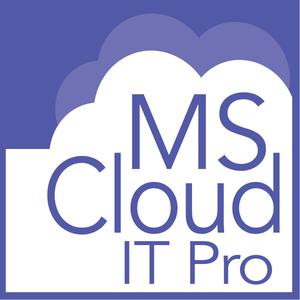
Microsoft Cloud IT Pro Podcast
Ben Stegink, Scott Hoag
Learn all about Microsoft 365 and Azure from a couple of IT Pros
- 30 minutes 12 secondsEpisode 393 – Microsoft Teams Meeting Room Solutions with Alex Mooney
Welcome to Episode 393 of the Microsoft Cloud IT Pro Podcast. In this episode, Ben is joined on the show by Alex Mooney from Logitech. The two of them discuss the integration of technology into meetings. They start out discussion AI for transcribing in-person meetings, highlighting some of their benefits and then shift into discussion various meeting room systems for Microsoft Teams. They discuss some of the offerings from Logitech including the Rally Bar Huddle, Rally Bar Mini, and Rally Bar and how they are certified for both Android and Windows to work in different scenarios for building out your Microsoft Teams Room system.
Like what you hear and want to support the show? Check out our membership options.Show Notes
- Microsoft Teams Room
- Microsoft Teams Room Documentation
- Plan Microsoft Teams Rooms
- Microsoft Teams Room Devices
- Logitech
- Conference Room Systems
- Request Logitech Demo
About Alex
With a leadership role at Logitech, Alex has had the exciting opportunity to shape the future of digital workspaces. He’s directed major collaborations, including the impactful partnership between Logitech and Microsoft that’s driving billions in revenue. These aren’t just business deals, they’re transformations—helping companies worldwide navigate the ever-changing terrain of technology.
Creating and implementing innovative solutions is part of Alex’s DNA. Project Ghost, an immersive video conferencing experience, is just one of the many successful initiatives that he’s been proud to lead.
He’s often invited to share my insights on industry trends and strategies at key events and in publications. It’s a role he relishes — helping others grasp the opportunities that this rapid era of technological change brings. His focus is always forward, on the potential of what can be achieved together in the fields of collaboration and efficiency.
Alex on LinkedIn: https://www.linkedin.com/in/alexm00ney/
About the sponsors
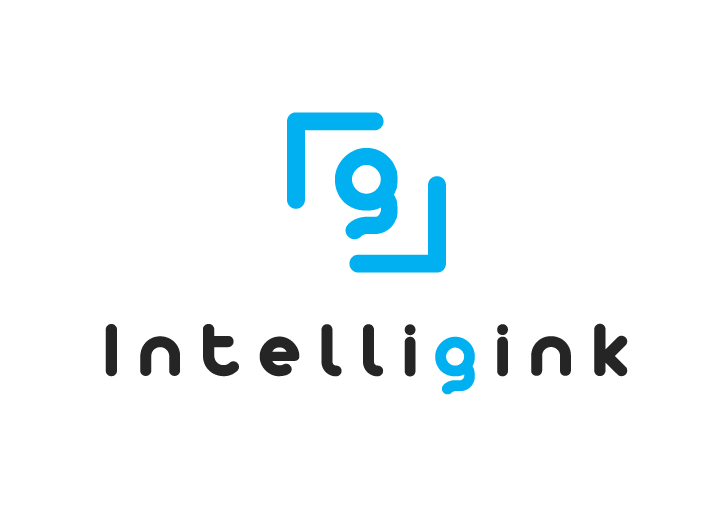 Would you like to become the irreplaceable Microsoft 365 resource for your organization? Let us know!
17 January 2025, 1:00 pm
Would you like to become the irreplaceable Microsoft 365 resource for your organization? Let us know!
17 January 2025, 1:00 pm - 31 minutes 8 secondsEpisode 392 – Building Confidence In Your Microsoft Copilot Deployment with AvePoint CTO John Peluso
Welcome to Episode 392 of the Microsoft Cloud IT Pro Podcast. In this episode, Ben interviews AvePoint CTO John Peluso. Listen in as they discuss Copilot in Microsoft 365 and how to govern and gain insights on your Copilot usage in your organization.
Copilot in Microsoft 365 is becoming a critical tool to supporting modern work. As Microsoft continues to iterate and improve on Microsoft Copilot, partners such as AvePoint help to augment the administration and analytics of Copilot adoption in your organization. While Copilot enables your workforce with the tools to their jobs, Microsoft and AvePoint also provide the tools for administrators to empower their workforce quickly in a safe way. Another part of the puzzle of administering Copilot is how do you measure AI adoption in your organization, benchmark your organization against similar organizations, and understand the activity levels and adoption of Copilot?
Listen in to hear about how AI tools like Copilot and AI in general can be governed in Microsoft 365 and how you can gain insights into how to approach analyzing Copilot adoption in your organization.
Like what you hear and want to support the show? Check out our membership options.
Show Notes
- AvePoint Introduces First-to-Market Benchmarking Data for Microsoft 365 Copilot
- IT Strategies for Copilot Administration
- Ignite 2024 – What’s new for Microsoft 365 and Copilot admins
- Ignite 2024: Why nearly 70% of the Fortune 500 now use Microsoft 365 Copilot
- Microsoft Ignite 2024: Top Microsoft 365 Copilot Updates
About the sponsors
 Would you like to become the irreplaceable Microsoft 365 resource for your organization? Let us know!
3 January 2025, 1:00 pm
Would you like to become the irreplaceable Microsoft 365 resource for your organization? Let us know!
3 January 2025, 1:00 pm - 24 minutes 12 secondsEpisode 391 – Remote Desktop and Application Delivery with Kamal Srinivasan from ParallelsWelcome to Episode 391 of the Microsoft Cloud IT Pro Podcast. In this episode, Scott sits down with Kamal Srinivasan from Parallels to talk how you can think about delivering applications and desktops to your users in post-Citrix world. As the traditional “Citrix” model faces disruption, we explore how remote work, hybrid scenarios, and cloud-based computing are redefining how organizations deliver applications and desktops to end users.
Key topics include:
- The shift away from static, on-prem desktops to dynamic, cloud-based compute.
- How to optimize app delivery by building on top of Microsoft’s Azure Virtual Desktop (AVD) platform.
- Bridging the gap between legacy systems and cloud-based solutions, enabling businesses to roll out remote desktop solutions like AVD and Parallels RAS gradually while scaling down on-prem infrastructure.
- The changing role of IT admins in supporting a workforce that operates anywhere, anytime.
Listen in and learn how your organization can streamline operations and empower your workforce with flexible, efficient application and desktop delivery.
Like what you hear and want to support the show? Check out our membership options.
Show Notes
- Parallels
- Parallels RAS
- Parallels RAS Resources
- Parallels Secure Workspace
- Enhance your Azure Virtual Desktop experience with Parallels RAS
- Windows 365 Link
- Episode 390: Microsoft Ignite 2024: Windows 365 Link
About the sponsors
 Would you like to become the irreplaceable Microsoft 365 resource for your organization? Let us know!
19 December 2024, 1:00 pm
Would you like to become the irreplaceable Microsoft 365 resource for your organization? Let us know!
19 December 2024, 1:00 pm - 18 minutes 13 secondsEpisode 390: Microsoft Ignite 2024: Windows 365 Link
Welcome to Episode 390 of the Microsoft Cloud IT Pro Podcast, live from Microsoft Ignite 2024! In this episode Ben sits down for a chat with Melissa Grant, head of product marketing for Windows 11 Enterprise, Windows 365, and Azure Virtual Desktop at Microsoft. Melissa discusses her tenure at Microsoft and the evolution of cloud-based Windows offerings, starting with the launch of Azure Virtual Desktop (AVD) five years ago and transitioning into Windows 365. They also discuss Windows 365 Link, Microsoft’s new dedicated endpoint device, designed for seamless, secure connections Windows 365 Cloud PCs. This device reduces the need for extensive IT management and resources by simplifying deployment process, and providing security benefits based on feedback from some of Microsoft’s customers.
Melissa Grant
Melissa Grant leads product marketing for Windows Enterprise, Windows 365 and Azure Virtual Desktop within Microsoft Modern Work. She and her team are dedicated to delivering secure, productive and efficient commercial solutions so customers can do their best work with Windows.
– Melissa on LinkedInLike what you hear and want to support the show? Check out our membership options.
Show Notes
- Windows in the Cloud leadership spotlight: Melissa Grant, Windows Marketing
- Windows 365 Link—the first Cloud PC device for Windows 365
- Windows 365 Link Preview
- Demo: Introducing Windows 365 Link
- Windows 365 Link Documentation
- What is Windows 365 Link?
About the sponsors
 Would you like to become the irreplaceable Microsoft 365 resource for your organization? Let us know!
5 December 2024, 1:00 pm
Would you like to become the irreplaceable Microsoft 365 resource for your organization? Let us know!
5 December 2024, 1:00 pm - 35 minutes 59 secondsEpisode 389: Microsoft Ignite 2024: Redefining AI, Productivity, and Edge Computing
Welcome to Episode 389 of the Microsoft Cloud IT Pro Podcast. In this special episode, we recap the game-changing announcements from Microsoft Ignite, Microsoft’s premier conference unveiling innovations across Microsoft 365 and Azure.We explore advancements in Agentic AI and multi-modal models that seamlessly accept and produce text, voice, and graphics. Discover how Copilot is evolving with features like reasoning over on-screen content (coming to Teams in CY25) and enhanced capabilities in tools like Word, PowerPoint, and Excel—bringing automated summaries, dynamic graphics, and effortless data analysis to the forefront.
Learn how Copilot Pages enable collaborative editing, while Copilot Extensibility and Agents allow businesses to create customized AI-powered helpers with ease. Imagine every SharePoint site having a built-in agent by default, making tasks more intuitive than ever.
We also cover new updates in edge AI—a “distributed computing fabric” blending Azure Local bare-metal solutions and Windows 365 Link thin clients. Innovations in AI-ready silicon underpin these transformative changes.
Like what you hear and want to support the show? Check out our membership options.
Show Notes
- Microsoft Ignite 2024 Book of News
- Introducing Copilot Actions, new agents, and tools to empower IT teams
- Redefine development: AI-first innovation with agents and Microsoft Copilot in Power Platform
- What’s new in Microsoft 365 Copilot in PowerPoint at Ignite 2024
- Copilot in Excel: Transforming Data Analysis
- What’s new and coming to Microsoft Outlook – Ignite 2024
- Microsoft Ignite 2024 | Microsoft 365 Copilot Innovation in Your Go-To Apps
- Ignite 2024 – What’s new for Microsoft 365 and Copilot admins
- Introducing Copilot Analytics to measure AI impact on your business
- New Copilot Prompt Gallery helps you discover, save, and share your favorite prompts
- Introducing the AI-Powered Workplace: Technology solutions for flexible work
About the sponsors
 Would you like to become the irreplaceable Microsoft 365 resource for your organization? Let us know!
21 November 2024, 1:00 pm
Would you like to become the irreplaceable Microsoft 365 resource for your organization? Let us know!
21 November 2024, 1:00 pm - 34 minutes 6 secondsEpisode 388 – Getting Started with Azure Bicep: Infrastructure as Code with a Domain Specific Language
Welcome to Episode 388 of the Microsoft Cloud IT Pro Podcast. In this episode, we dive into Azure Bicep, Microsoft’s streamlined language for defining cloud infrastructure. If you’re new to Infrastructure as Code (IaC) or looking to simplify your Azure deployments, listen in to learn how easy it is to get started with Azure Bicep. We walk through the essentials, from setting up the necessary tools such as Visual Studio Code and the Azure Bicep extension, to exploring the intuitive features that make Bicep so powerful. Discover how Bicep’s functions, objects, and simplified syntax improve your workflow, offering a more readable and maintainable alternative to traditional ARM templates.
Whether you’re an Azure admin or a developer, this episode provides a clear path to building and managing Azure resources effectively with Bicep. Tune in and start coding your infrastructure with confidence!
Like what you hear and want to support the show? Check out our membership options.
Show Notes
- Microsoft Ignite
- What is Bicep?
- Bicep functions
- Quickstart: Create Bicep files with Visual Studio Code
- Azure/azure-quickstart-templates
- ˚Decompiling ARM template JSON to Bicep
- Learn modules for Bicep
About the sponsors
 Would you like to become the irreplaceable Microsoft 365 resource for your organization? Let us know!
7 November 2024, 1:00 pm
Would you like to become the irreplaceable Microsoft 365 resource for your organization? Let us know!
7 November 2024, 1:00 pm - 36 minutes 57 secondsEpisode 387 – Windows on ARM: Physical Hardware vs Virtual Machines, App Compatibility, and Other ConsiderationsWelcome to Episode 387 of the Microsoft Cloud IT Pro Podcast. In this episode, Scott and Ben dive into a discussion around Ben’s newly purchased Surface Pro 11th Edition – a Copilot Plus PC running on an ARM processor. Ben gives his takes on the state of the hardware and how Windows 11 runs on a native ARM processor. Scott also gives his experience running Windows 11 daily for work on Parallels Desktop on Apple Silicon. Scott’s hot take – virtualizing Windows 11 on a Mac is better than running it on native hardware. Listen in as Ben and Scott talk through Windows on ARM, whether a virtual machine might be best for you to try out Windows on ARM, pitfalls of application compatibility, and when you might just want to consider a remote desktop session instead to get your Windows work done from a Mac.
Like what you hear and want to support the show? Check out our membership options.
Show Notes
- Meet the Surface Pro 11th Edition
- Microsoft announces Copilot Plus PCs with built-in AI hardware
- The Ultimate Solution: Windows 11 in a virtual machine + Parallels Desktop + Mac Computers with Apple silicon
- Azure Cobalt 100-based Virtual Machines are now generally available
- Unified inbox in Outlook for Mac
- MMR Call Redirection for Azure Virtual Desktop, Windows 365 now available
- How emulation works on Arm
- Exploring Windows on ARM: The Future of Computing
About the sponsors
 Would you like to become the irreplaceable Microsoft 365 resource for your organization? Let us know!
25 October 2024, 12:00 pm
Would you like to become the irreplaceable Microsoft 365 resource for your organization? Let us know!
25 October 2024, 12:00 pm - 37 minutes 45 secondsEpisode 386 – Exploring DevOps Tools: Maester, Pester, and SCUBAWelcome to Episode 386 of the Microsoft Cloud IT Pro Podcast. In this episode, we explore three powerful tools designed to improve automation, testing, and security in modern development and operations workflows: Maester, Pester, and SCUBA. Whether you’re a DevOps engineer, PowerShell enthusiast, or security professional, this episode is packed with valuable insights on how to streamline your processes and strengthen your infrastructure using these powerful tools. Tune in to level up your automation and security game!
Like what you hear and want to support the show? Check out our membership options.
Show Notes
- Maester
- Pester
- Use the What If tool to troubleshoot Conditional Access policies
- Secure Cloud Business Applications (SCuBA) Project
About the sponsors
 Would you like to become the irreplaceable Microsoft 365 resource for your organization? Let us know!
10 October 2024, 12:00 pm
Would you like to become the irreplaceable Microsoft 365 resource for your organization? Let us know!
10 October 2024, 12:00 pm - 34 minutes 58 secondsEpisode 385 – Microsoft Sentinel: Deployment, Management, and Cost OptimizationWelcome to Episode 385 of the Microsoft Cloud IT Pro Podcast. In this episode, we dive into deploying, managing, and optimizing Microsoft’s leading cloud-native SIEM (Security Information and Event Management) solution. Whether you’re new to Microsoft Sentinel or looking to deepen your expertise, this episode is packed with actionable insights to help you secure your Azure environment effectively.
Like what you hear and want to support the show? Check out our membership options.
Show Notes
- What is Microsoft Sentinel?
- Deployment guide for Microsoft Sentinel
- Plan costs and understand Microsoft Sentinel pricing and billing
- Log retention plans in Microsoft Sentinel
- Prepare for multiple workspaces and tenants in Microsoft Sentinel
- Centrally manage multiple Microsoft Sentinel workspaces with workspace manager (Preview)
- Sentinel Content Packs
- Free data sources
- Automate threat response with playbooks in Microsoft Sentinel
About the sponsors
 Would you like to become the irreplaceable Microsoft 365 resource for your organization? Let us know!
2 October 2024, 12:00 pm
Would you like to become the irreplaceable Microsoft 365 resource for your organization? Let us know!
2 October 2024, 12:00 pm - 34 minutes 57 secondsEpisode 384 – Securing Azure: Microsoft Defender for CloudWelcome to Episode 384 of the Microsoft Cloud IT Pro Podcast. In this episode, we tackle a wide range of essential topics to help you monitor, secure, and streamline operations across your Azure estate. From access control strategies to virtual machine agents and everything in between, this episode gives you a high-level overview of Microsoft Defender for Cloud and the suite of Azure services it protects.
Like what you hear and want to support the show? Check out our membership options.
Show Notes
- Episode 382 – Securing the Modern Workplace: Exploring Microsoft Entra ID Security Defaults, Conditional Access Policies, and Microsoft Secure Score
- Episode 383 – Securing Azure: Monitoring and observing your Azure estate
- What is Microsoft Defender for Cloud?
- Common questions about Defender for Cloud?
- Common questions about data collection, agents, and workspaces
- About Azure Update Manager
- Align responsibilities across teams
About the sponsors
 Would you like to become the irreplaceable Microsoft 365 resource for your organization? Let us know!
12 September 2024, 12:00 pm
Would you like to become the irreplaceable Microsoft 365 resource for your organization? Let us know!
12 September 2024, 12:00 pm - 43 minutes 58 secondsEpisode 383 – Securing Azure: Monitoring and observing your Azure estateWelcome to Episode 383 of the Microsoft Cloud IT Pro Podcast. In this episode we continue our discussion on security, transitioning from Microsoft 365 to Azure (Episode 382 – Securing the Modern Workplace: Exploring Microsoft Entra ID Security Defaults, Conditional Access Policies, and Microsoft Secure Score) to Microsoft Azure. We begin with Azure security logging and auditing, discussing the importance of capturing and analyzing security logs to detect and respond to potential threats. Next, we delve into Azure Monitor data sources and data collection methods. Azure Monitor provides a comprehensive set of tools to collect, analyze, and act on telemetry data from your cloud and on-premises environments. Finally, we discuss how the components of Azure Monitor can be used for managing and analyzing the vast amounts of data generated in your Azure environment. We’ll explore how this platform supports advanced analytics, helps you identify trends and anomalies, and enables proactive threat detection. Whether you’re a cloud architect, security professional, or IT admin, this episode offers practical advice and strategies for leveraging observability to enhance your security posture in Azure. Tune in to discover how you can better protect your organization by implementing effective observability practices. Like what you hear and want to support the show? Check out our membership options. Show Notes Announcing mandatory multi-factor authentication for Azure sign-in Azure security logging and auditing Azure Monitor data sources and data collection methods Azure Monitor data platform Extend Azure with Azure Native ISV Services About the sponsors Would you like to become the irreplaceable Microsoft 365 resource for your organization? Let us know!29 August 2024, 12:00 pm
- More Episodes? Get the App
Your feedback is valuable to us. Should you encounter any bugs, glitches, lack of functionality or other problems, please email us on [email protected] or join Moon.FM Telegram Group where you can talk directly to the dev team who are happy to answer any queries.
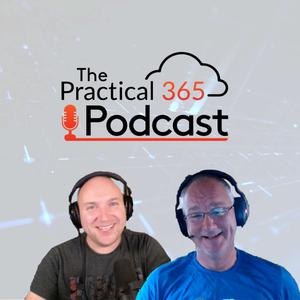 The Practical 365 Podcast
The Practical 365 Podcast
 Cyber Security Headlines
Cyber Security Headlines
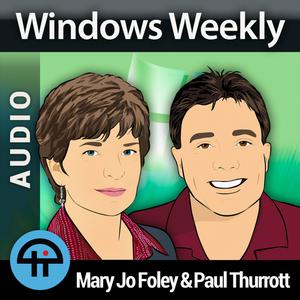 Windows Weekly (Audio)
Windows Weekly (Audio)
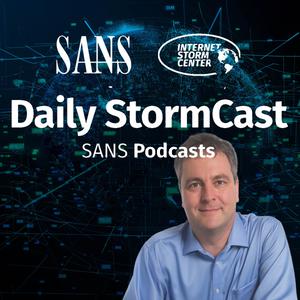 SANS Internet Stormcenter Daily Cyber Security Podcast (Stormcast)
SANS Internet Stormcenter Daily Cyber Security Podcast (Stormcast)
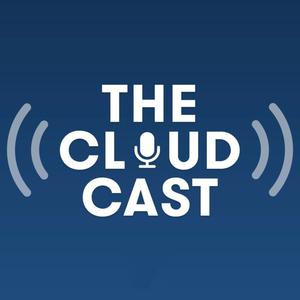 The Cloudcast
The Cloudcast
 Security Now (Audio)
Security Now (Audio)